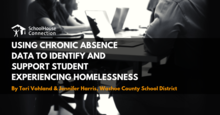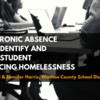0
Publication
Community:
May 24, 2019
There’s a growing body of evidence that positively links affordable, stable, and quality housing with improved educational outcomes for children. That research continually points to the positive return on investment for the earliest possible intervention. Housing authorities are uniquely poised to help change the trajectory for low-income children who typically arrive in kindergarten already substantially behind their peers. We can leverage unique assets that other systems players cannot.
Authored by: Betsey Martens and Erica Plut for Journal of Housing and Community Development
Topics: Early childhood, Education, Housing, Out-of-school time, Partnerships
 Shared by Housing Is
Shared by Housing Is
Housing Is posted a
on May 28, 2019
Betsey Martens and Erica Plut for Journal of Housing and Community Development
There’s a growing body of evidence that positively links affordable, stable, and quality housing with improved educational outcomes for children. That research continually points to the positive return on investment for the earliest possible intervention.
0
Publication
Community:
Founded in 1995 as Project Women, Family Scholar House (FSH) provides comprehensive, holistic services for disadvantaged single parents, their children, and foster alumni. The nonprofit seeks to end the cycle of poverty and transform communities by empowering families and youth to succeed in education and life-long self-sufficiency. FSH provides supportive housing, educational programming, and participant advocacy to help families gain independence.
Authored by: American Planning Association
Topics: Dual-generation, Early childhood, Education, Homelessness, Housing, Low-income, Partnerships, Place-based, Post-secondary, South, Stability
 Shared by Mica O'Brien
Shared by Mica O'Brien
Mica O'Brien posted a
on Apr 18, 2019
American Planning Association
Founded in 1995 as Project Women, Family Scholar House (FSH) provides comprehensive, holistic services for disadvantaged single parents, their children, and foster alumni.
0
Research
Community:
Feb 22, 2019
Thoughtfully developed, accessible communities may boost parent engagement and student outcomes in low-income neighborhoods
Authored by: Rachel Sturtz for University of Colorado Denver
Topics: Community development, Education, Family engagement, Housing, Low-income, Partnerships, Racial inequalities, Transportation
 Shared by Housing Is
Shared by Housing Is
Housing Is posted a
on Apr 4, 2019
Rachel Sturtz for University of Colorado Denver
Thoughtfully developed, accessible communities may boost parent engagement and student outcomes in low-income neighborhoods
0
Research
Community:
Mar 28, 2019
Federal safety net programs are intended to protect the most vulnerable Americans—such as the elderly, people with severe disabilities and young children. Housing assistance plays a critical role in the safety net, providing decent, safe, and affordable housing for millions of extremely low-income and vulnerable families—though, because it is not an entitlement like other federal safety net programs, the assistance available falls far short of the need. Housing subsidies free families to spend on other essentials like healthy food, education, and health care.
Authored by: Susan J. Popkin for Journal of Housing & Community Development
Topics: Asset building, Dual-generation, Education, Housing, Mental health, Mobility, Partnerships, Research, Workforce development
 Shared by Housing Is
Shared by Housing Is
Housing Is posted a
on Apr 2, 2019
Susan J. Popkin for Journal of Housing & Community Development
Federal safety net programs are intended to protect the most vulnerable Americans—such as the elderly, people with severe disabilities and young children.
0
Publication
Community:
Feb 28, 2019
This brief presents a new approach to support the development of early math skills in young children. The approach synthesizes the influence of parents, home environment, and children’s health care providers. The brief draws on research to explain (1) why it is important to support early math development, (2) what early math is (and isn’t), (3) how early math and literacy development intertwine, and (4) the important role parents play in their child’s development. The brief ends with a description of a promising approach to support early childhood math development that leverages communication between parents and health care providers and book sharing during well-child primary care visits.
Authored by: Mathematica Policy Research
Topics: Child welfare, Early childhood, Education, Health, Literacy, Partnerships
 Shared by Housing Is
Shared by Housing Is
Housing Is posted a
on Mar 18, 2019
Mathematica Policy Research
This brief presents a new approach to support the development of early math skills in young children. The approach synthesizes the influence of parents, home environment, and children’s health care providers.
0
Publication
Community:
Education Leads Home’s State Partnerships on Student Homelessness Project brings together policymakers and practitioners from with the goal of overcoming child and youth homelessness through education. Through the partnership, each state is committed to researching and implementing replicable best practices that address the most urgent needs of their unique homeless student populations. The State Partnerships on Student Homelessness Project is a nonpartisan effort to develop best practices that can be replicated by communities and states nationwide. In its inaugural year of the project, Education Leads Home (ELH) awarded six states – California, Kentucky, Hawaii, Nevada, Oregon, and Washington – small grants through a competitive process. ELH will provide ongoing technical assistance.
Authored by: Education Leads Home
Topics: Child welfare, Education, Funding, Homelessness, Housing, Low-income, Partnerships, Youth
 Shared by Housing Is
Shared by Housing Is
Housing Is posted a
on Mar 5, 2019
Education Leads Home’s State Partnerships on Student Homelessness Project brings together policymakers and practitioners from with the goal of overcoming child and youth homelessness through education.
0
Publication
Community:
Jan 9, 2019
In this post, we hope to inspire others working in PreK-12 educational settings to examine rates of chronic absenteeism among the students they serve. We define chronic absenteeism and share three graphic displays of chronic absence data from our school district, the Washoe County School District located in Reno, NV.
Authored by: Tori Vohland and Jennifer Harris for Schoolhouse Connection
Topics: Attendance, Child welfare, Education, Homelessness, Housing, Partnerships, Youth
 Shared by Mica O'Brien
Shared by Mica O'Brien
Mica O'Brien posted a
on Jan 24, 2019
Tori Vohland and Jennifer Harris for Schoolhouse Connection
In this post, we hope to inspire others working in PreK-12 educational settings to examine rates of chronic absenteeism among the students they serve.
0
Publication
Community:
Jan 24, 2019
Affordable housing campaigns are not new, of course, but what is unprecedented and transformative about Opportunity Starts at Home is the scope and diversity of the partners that are joining forces to advocate for more robust and equitable federal housing policies. The campaign is advised by a Steering Committee including leading national organizations representing a wide range of interests that are working shoulder-to-shoulder to solve the affordable housing crisis.
Authored by: Opportunity Starts at Home
Topics: Asset building, Child welfare, CLPHA, Community development, Early childhood, Education, Food insecurity, Funding, Health, Homelessness, Housing, Immigrants, Legislation & Policy, Low-income, Mobility, Out-of-school time, Partnerships, Racial inequalities, Safety, Seniors, Stability, Substance abuse, Youth
 Shared by Mica O'Brien
Shared by Mica O'Brien
Mica O'Brien posted a
on Jan 24, 2019
Opportunity Starts at Home
Affordable housing campaigns are not new, of course, but what is unprecedented and transformative about Opportunity Starts at Home is the scope and diversity of the partners that are joining forces to advocate for more robust and equitable federal housing policies.
0
Publication
Community:
Teachers know that children learn better and are more likely to graduate when they live in a stable, affordable home.
Authored by: Opportunity Starts at Home
Topics: Child welfare, Early childhood, Education, Housing, Partnerships, Youth
 Shared by Mica O'Brien
Shared by Mica O'Brien
Mica O'Brien posted a
on Jan 18, 2019
Opportunity Starts at Home
Teachers know that children learn better and are more likely to graduate when they live in a stable, affordable home.
0
Publication
Community:
Jan 1, 2019
According to the Institute for Women’s Policy Research, 26% of undergraduate students--about 4.8 million students--are raising dependent children. Students of color are more likely to be parents; additionally, about 70% of parenting students are women. These students are balancing many competing demands: attending classes, keeping up with schoolwork, and caring for children. College and child care are costly, with the average cost of child care ranging between $8,000-$35,000 each year. As a result, parenting students are more likely to experience food and housing insecurity than students who do not have children.
Authored by: SchoolHouse Connection
Topics: Dual-generation, Early childhood, Education, Housing, Partnerships, Post-secondary, Youth
 Shared by Mica O'Brien
Shared by Mica O'Brien
Mica O'Brien posted a
on Jan 16, 2019
According to the Institute for Women’s Policy Research, 26% of undergraduate students--about 4.8 million students--are raising dependent children. Students of color are more likely to be parents; additionally, about 70% of parenting students are women.
0
Research
Community:
Sep 19, 2018
Many social issues stem from a history of unstable, unaffordable, and poor-quality housing. Research shows that housing is the first rung on the ladder to economic opportunity for individuals and that a person’s access to opportunity is intrinsically linked with that of the community at large. As the gap between rents and incomes widens, it is critical that professionals in fields outside housing—including health, education, and economic development, among others—understand its central importance.
Authored by: Veronica Gaitan for Urban Institute
Topics: Community development, Education, Health, Housing, Low-income, Metrics, Partnerships, Research
 Shared by Mica O'Brien
Shared by Mica O'Brien
Mica O'Brien posted a
on Sep 20, 2018
Veronica Gaitan for Urban Institute
Many social issues stem from a history of unstable, unaffordable, and poor-quality housing. Research shows that housing is the first rung on the ladder to economic opportunity for individuals and that a person’s access to opportunity is intrinsically linked with that of the community at large.
0
Research
Community:
Aug 1, 2018
Homelessness among children is correlated with developmental delays, fair or poor health, and high healthcare utilization. Associations of homelessness specifically among infants younger than 12 months, however, are unknown. This study evaluates homelessness during infancy as a risk for adverse infant and maternal health and hardship.
Authored by:
Topics: Child welfare, Depression, Disabilities, Dual-generation, Early childhood, Education, Family engagement, Food insecurity, Grade-level proficiency, Health, Homelessness, Housing, Low-income, Metrics, Partnerships, Pre-natal, Research, School-readiness, Youth
 Shared by Housing Is
Shared by Housing Is
Housing Is posted a
on Aug 1, 2018
Homelessness among children is correlated with developmental delays, fair or poor health, and high healthcare utilization. Associations of homelessness specifically among infants younger than 12 months, however, are unknown.
0
Research
Community:
Aug 1, 2018
Work requirements in public housing are highly controversial, and
little is known about their impacts. We examined how implementation of a work requirement paired with supportive services by Charlotte Housing Authority has impacted residents’ overall well-being. Although the policy might improve well-being
by increasing household income, it might also engender stress through greater housing precarity.
Authored by:
Topics: Depression, Disabilities, Education, Food insecurity, Health, Housing, Low-income, Medicaid / Medicare, Mental health, Metrics, MTW, Partnerships, Racial inequalities, Research, South, Workforce development
 Shared by Housing Is
Shared by Housing Is
Housing Is posted a
on Aug 1, 2018
Work requirements in public housing are highly controversial, and
little is known about their impacts. We examined how implementation of a work requirement paired with supportive services by Charlotte Housing Authority has impacted residents’ overall well-being.
0
Publication
Community:
Jul 12, 2018
Authored by:
Topics: Child welfare, Dental, Early childhood, Education, Exercise, Family engagement, Health, Housing, Medicaid / Medicare, Mental health, Nutrition, Partnerships, Place-based, Preventative care, Seniors, Vision
 Shared by Housing Is
Shared by Housing Is
Housing Is posted a
on Jul 12, 2018
 Shared by Housing Is
on May 28, 2019
Shared by Housing Is
on May 28, 2019



 Shared by Housing Is
on Apr 4, 2019
Shared by Housing Is
on Apr 4, 2019

 Shared by Housing Is
on Apr 2, 2019
Shared by Housing Is
on Apr 2, 2019
 Shared by Housing Is
on Mar 18, 2019
Shared by Housing Is
on Mar 18, 2019

 Shared by Housing Is
on Mar 5, 2019
Shared by Housing Is
on Mar 5, 2019



 Shared by Housing Is
on Aug 1, 2018
Shared by Housing Is
on Aug 1, 2018
 Shared by Housing Is
on Aug 1, 2018
Shared by Housing Is
on Aug 1, 2018
 Shared by Housing Is
on Jul 12, 2018
Shared by Housing Is
on Jul 12, 2018






